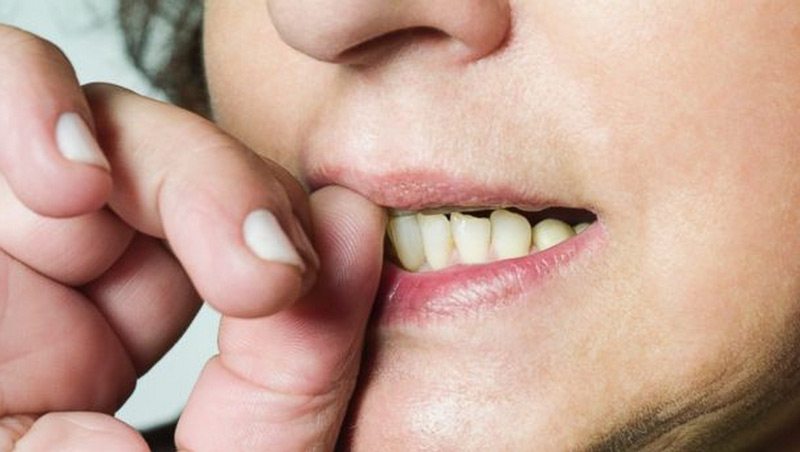Are you someone who gnaws on your fingernails throughout the day? If so, you certainly have a lot of company. It’s estimated that about one-third of adults continues to bite their fingernails.
Ever contemplated the psychology behind biting your nails? Most people view the act as a sign of nervousness and anxiety.
On the surface, this viewpoint makes sense…but it may not tell the whole story. According to a study published in the Journal of Behavior Therapy and Experimental Psychiatry, nail biting may be a sign of…perfectionism.
Psychology Today explains perfectionism as: “…an endless report card on accomplishments or looks. It’s a fast track to unhappiness, and…is often accompanied by depression..”
In this article, we’ll briefly discuss the study and its implications for the nail-biters among us. We’ll also talk nail-biting from a health perspective.
IF YOU BITE YOUR NAILS, HERE’S WHAT IT MEANS ABOUT YOU
Body-focused repetitive behaviors (BFRBs) are described as “repetitive, injurious, and non-functional habits that cause significant distress or impairment, including hair-pulling, skin-picking, and nail-biting.”
The research team sought to compare the tendency to engage in BFRB using two models: emotional regulation (ER) and frustrated action (FA).
The ER model implies that BFRBs are triggered by negative emotions and alleviation of unpleasant effect. The FA model posits that BFRBs are triggered by and alleviate impatience, boredom, frustration, and dissatisfaction.
Researchers hypothesized that individuals who engage in BFRBs are more prone to actions under the FA model, as “they demonstrate maladaptive planning styles characterized by high standards and unwillingness to relax,” two inherent traits in perfectionists.
RESULTS
After observing a ‘BFRB group’ and a control group, consisting of 24 and 23 participants, respectively, researchers concluded the correctness of their hypothesis. The study’s results include three observations:
(1) The BFRB group reported a considerably higher urge to engage in BFRBs than the control group across conditions.
(2) BFRB participants reported a considerably higher urge to engage in the boredom/frustration and stress environment than in the relaxation environment.
(3) Most tellingly, the BFRB group “presented significantly higher scores on maladaptive planning style, and maladaptive planning style was significantly correlated with difficulties in ER.”
THE STUDY AND PERFECTIONISM
The lead author of the study, Dr. Kieron O’Connor, stated “We believe that individuals with these repetitive behaviors may be perfectionists, meaning that they are unable to relax and to perform tasks at a normal pace. They are therefore prone to frustration, impatience, and dissatisfaction when they do not reach their goals.”
In other words, nail-biting may have less of a correlation with nerves and anxiety than with frustration. This observation, along with the study’s demonstrated linkage of nail-biting and other perfectionistic traits – impatience, boredom, and dissatisfaction – provides further evidence to the idea that perfectionism may prompt the act of nail-biting.
Continue to NEXT PAGE …









